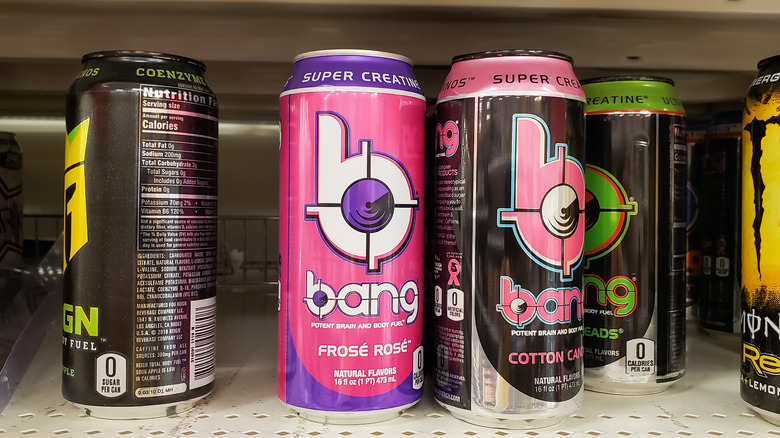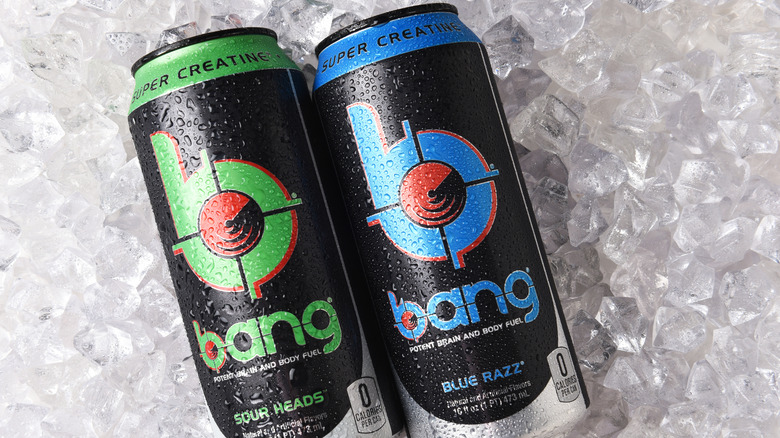Bang Energy Drink Has More Caffeine Than You Might Have Thought
It's no secret that energy drinks pack a powerful caffeine punch designed to jolt you awake and keep you active and alert. Popular brands such as Red Bull, Monster, and Rockstar invest millions in advertising and market their ability to provide you with a boost meant to give you a surge in productivity, whether that entails work or play.
Bang, another leader in the energy drink scene, takes a slightly different approach, targeting their product toward weight lifters and fitness types as a possible weight loss aid and vitality supplement (via Oola). As Null Chiropractic notes, Bang even contains ingredients like creatine and branched-chain amino acids that athletes and bodybuilders often use to enhance their performance and build more muscle when pumping iron.
At the same time it also features a truckload of caffeine, which, after all, is a stimulant. One 16-ounce Bang can has 300 milligrams of caffeine, the equivalent of drinking three cups of coffee (per the Mayo Clinic). As a reference point, the Mayo Clinic recommends 400 mg (about four cups of coffee) as the safe threshold for daily caffeine intake. Anything beyond that and you risk incurring unpleasant side effects like migraine headaches, insomnia, anxiety, irritability, frequent bathroom trips, digestive problems, and more.
Drinking high levels of caffeine can lead to dependency
Caffeine Informer, a website that explains the pros and cons of caffeine and shares information on the stimulant's content in energy drinks, coffee, teas, sodas, and foods, rates Bang's strength as "extreme." Not a brand to dabble in subtlety, Bang's flavors run the gamut from Frosé Rosé and Cotton Candy to Radical Skadattle and Rainbow Unicorn, each one loaded with that whopping 300 milligrams of caffeine.
In an interview with Mashed, Brenda Braslow, a registered dietitian who works for the nutrition app MyNetDiary, expressed concerns about the high caffeine content of energy drinks, and how consuming large amounts can lead to a dependence that can cause a person to incrementally increase their daily intake, resulting in some of the harmful side effects mentioned above. Additionally, she warns that most energy drinks are typically chock full of sugar and empty calories.
Bang instead replaces those carbs and sugars with artificial sweeteners, which is both good and bad, according to Null Chiropractic. While they cleverly avoid the calories, studies have shown that artificial sweeteners like aspartame may contribute to weight gain (per the Yale Journal of Biology and Medicine). If you're in need of a caffeine fix to kickstart your daily routine, sticking to tea or coffee and avoiding sugars, creamers, and whole milk as much as possible is probably the best route — just remember to set reasonable limits.

